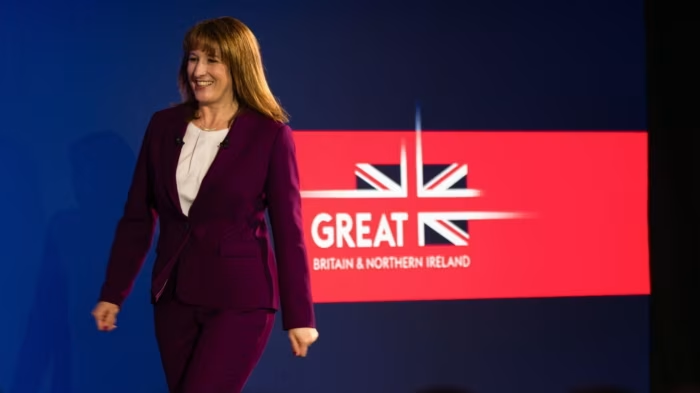Rachel Reeves will hold talks in Riyadh on Monday in a dash to push through a Gulf trade deal, as the UK chancellor tries to fill a gaping fiscal hole in next month’s Budget with growth-boosting measures.
Reeves is seeking to convince official forecasters that trade accords — including one with Gulf countries — along with new planning reforms being rushed through parliament can boost the economy and reduce the need for painful tax rises on November 26 by billions of pounds.
The chancellor claims that trade deals, notably the one agreed in principle with the EU in May and pacts with India and the US, should be included in the Office for Budget Responsibility’s growth forecasts.
Government officials hope the OBR will also include in its Budget forecasts several billion pounds of extra tax receipts that they claim will be generated from cuts to planning red tape. Upgrades to northern rail connections are also planned.
Haggling with the OBR, the independent fiscal watchdog, is already under way over how much these policies will boost growth and reduce the size of the projected fiscal hole, estimated at between £20bn and £30bn.
The OBR is traditionally sceptical and will note that the outline EU deal, including a proposed “youth mobility scheme”, is far from being finalised. A recently beefed-up planning bill is still in the House of Lords, although ministers want it on the statute book in early November.

Reeves, who is taking a delegation of British business leaders to the “Davos in the Desert” event in Riyadh, said: “After our landmark deals with the US, EU and India, we’re determined to build on that momentum by going further and faster.”
British officials said Reeves would use the trip to build momentum towards a trade deal with the Gulf Cooperation Council, which represents Bahrain, Kuwait, Oman, Qatar, Saudi Arabia and the United Arab Emirates. Talks with the oil-rich bloc began in 2022 under the then Conservative government.
One said Reeves wanted to strike the deal in time for it to be included in Budget forecasts, although another added that it would be “surprising” if she managed to get an agreement over the line during her two-day trip.
Reeves pushed her Budget back to November 26 to give herself more time to persuade the OBR that she has policies that will boost growth and fill government coffers. The haggling over the details will be tense and will shape her fiscal package.
The chancellor has argued that the OBR should “score” trade deals such as the one with the EU, insisting that removing trade barriers to food products and the promised youth mobility scheme will be good for the economy.
However, the OBR usually wants to see proof that a policy is being delivered and the EU deal is not finalised, nor are the precise details of the youth scheme known. The watchdog will also want to see the planning bill on the statute book before including it in its forecasts.
None of these “growth” measures will, in themselves, transform the overall fiscal picture, which remains very tough, although recent downward movements in government borrowing costs have given the Treasury slightly more room for manoeuvre.
Reeves is considering whether she will need to break her manifesto commitment and raise income tax to help fill the gap, while higher taxes on expensive properties are also on her agenda.

The government’s own analysis suggests that a trade deal with the GCC would increase British GDP only by £1.6bn a year, with Reeves looking to boost trade in areas including AI, life sciences and financial services.
Meanwhile, the government has claimed that the EU “reset” deal will add nearly £9bn to the UK economy by 2040, while the other hope is that the OBR will generously score planning reforms intended to boost housebuilding and big infrastructure projects.
The OBR calculated in March that earlier planning reforms would generate an extra £3.4bn in tax by 2029-30. Labour officials claim the latest changes in the planning bill will have an equivalent effect on public finances.
The government said: “Negotiations on a trade deal with the GCC are at an advanced stage and continue to progress at pace.” The talks cover goods, services and investment.
Last week GCC chief Jasem Albudaiwi was in London for talks on the deal. A person familiar with the matter said the UK was struggling to make progress in the trade talks
Reeves’ two-day trip to Riyadh is focused on the Future Investment Initiative, known as Davos in the Desert, where she is expected to meet Saudi royals, ministers and global chief executives.
Speakers include JPMorgan Chase chair Jamie Dimon, BlackRock chief Larry Fink, Citi chief executive Jane Fraser and Ruth Porat, president of Alphabet.
Like its Tory predecessors, the Labour government has sought to lure sovereign wealth fund investment from Gulf states to back its growth agenda.
“Our number one priority is growth, so I am taking Britain’s offer of stability, regulatory agility and world-class expertise, directly to one of the world’s most important trade and investment hubs,” Reeves said.
Business leaders travelling with her include the chief executives of Barclays, Standard Chartered and Octopus Energy, and the chairs of GSK and Revolut.


